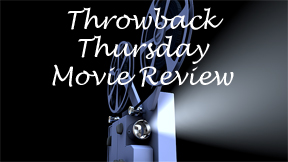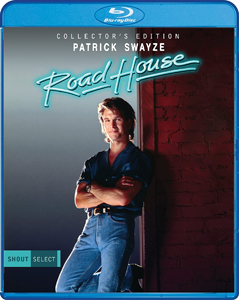A friend of mine claims that the ridiculousness of “Road House” (1989) can be chalked up to it being an Eighties movie. But I contend that director Rowdy Herrington and writers R. Lance Hill and Hilary Henkin had to have been chuckling through much of the filmmaking process.
‘Road House’ or ‘Animal House’?
Strictly speaking, this Patrick Swayze actioner is played straight. But it calls to mind “Animal House” as much as its other major influences – muscular Eighties action and Westerns where a drifter helps the good guys dispatch the bad guys in a lawless frontier town.
We start with an alternate-reality premise wherein particularly skilled bouncers – like Swayze’s Dalton – can become so good at their jobs, and those jobs are so crucial to operations of a successful bar, that they can become famous and extremely well-paid.

“Road House” (1989)
Director: Rowdy Herrington
Writers: R. Lance Hill, Hilary Henkin
Stars: Patrick Swayze, Kelly Lynch, Sam Elliott
Tilghman (Kevin Tighe, dripping slime but actually a good guy) hires Dalton as his lead bouncer – a.k.a. cooler – to clean up the frighteningly rowdy Double Deuce in Jasper, somewhere near Kansas City. The town simultaneously has an Eighties and an Old West vibe, and it builds its reality like a fantasy universe, much like “Harry Potter” or “John Wick,” just on a simpler scale.
Before the 114-minute runtime is over, Brad Wesley (Ben Gazzara, oozing sleaze), goes over-the-top even by the standards of a mob boss controlling a town. It’s hard to pick the most absurd sequence, but a strong contender is when Wesley’s goons destroy a car dealership with a monster truck. Protection scams make sense, but outright destroying businesses means you’ll kill the town, and stop your inflow of money.
One could argue Wesley has gone crazy. That’s fair enough, especially once we learn that Dalton’s love interest, simply credited as “Doc” and briefly called Elizabeth (Kelly Lynch), is one of Wesley’s rare failed conquests. Another slight logical misfire comes when Doc positions Dalton as an equivalent to Wesley if he doesn’t get his violence under control. Granted, Dalton has just ripped out a henchman’s throat at that point, but it’s clearly self-defense.
Calm before the fights
Swayze, at the peak of his powers, plays Dalton like Kurt Russell’s Snake Plissken but with a preternatural ability to stay calm for an unusually long time before unleashing the violence necessary to end a bar fight.
Dalton gets employees to follow him in that man-of-few-words Western drifter fashion, despite being smaller than people assume based on his reputation. He proves it through his actions, particularly amid the well-choreographed but hilarious fight that breaks out – in the boss’s office! — when he starts by firing the worst staffers.

Among them are a bartender who brazenly skims from the till (John Doe, later of “Roswell”), a waitress who brazenly sells drugs to customers, and a bouncer who brazenly has sex with customers in the back room. No one does anything subtly in “Road House.”
Is it Good, Bad or Good-Bad?
“Road House” is parody-proof, because it arrives fully formed as a parody of itself – from female patrons offering stripper-esque services for $20 to the fact that the house musicians (the Jeff Healey Band, playing apt blues rock) don’t miss a beat when fights break out. I guess it’s understandable; after all, they see this all the time. They’d never get through a song if they stopped every time a punch is thrown.
The film includes a scene wherein a bad guy lands in the dumpster after a knockout punch, all part of a touching reunion between Dalton and mentor Wade Garrett (Sam Elliott, 45, playing 65, and oozing charisma). But “Road House” itself is not trash – it’s too well-made.
The fight choreography stands confidently with the golden age of action heroism, even if some of the bar fights resemble the “Naked Gun” baseball brawl in terms of screen-filling chaos. And the romantic sequence between Dalton and Doc is wrenching in the way it portrays a fantasy that couldn’t go so smoothly in reality, complete with Otis Redding’s “These Arms of Mine” coming on the radio.
“Road House” is loved by many, but if it’s good, there’s debate about what type of “good.” A “Good Bad Movie”? No, it’s too good for that label. That’d be like saying the “Harry Potter” franchise is Good Bad because wizards don’t really exist. But you can’t say “Road House” is just plain good, because the screenplay rests on a string of actions that are unbelievably stupid. Yet there is internal logic to the stupidity; no one behaves out of character, and everyone’s goals are clear.
The film draws from so many real things, and Swayze is a thoroughly likable lead who could’ve made a bar-hopping franchise out of this. The world of the movie does not line up with reality, in 1989 or at any point in history, so that makes it fantasy entertainment. But “Road House” is unusual in that its gritty “realism” is so exaggerated that it becomes the fantastical part.

